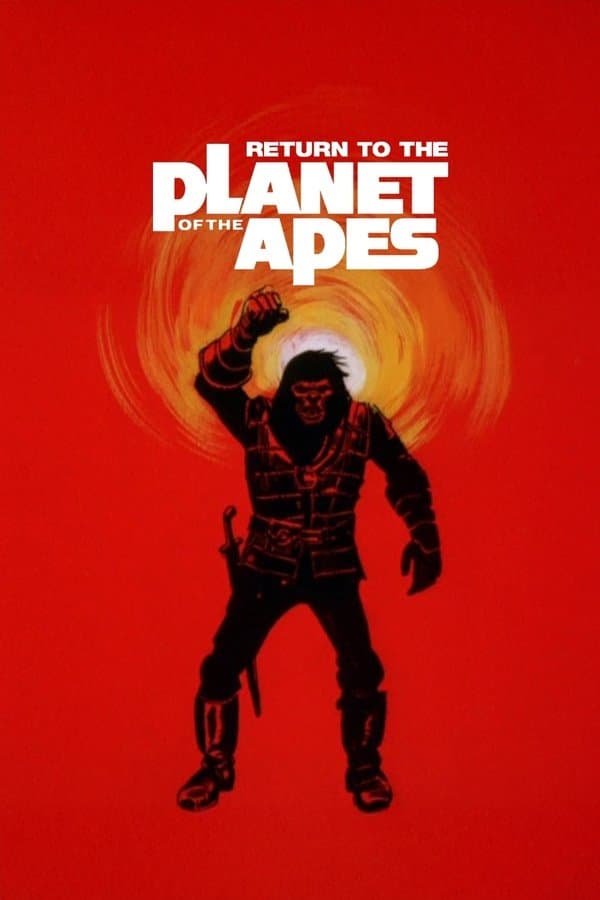
Return to the Planet of the Apes
1975 • Animation, Sci-Fi & Fantasy • TV-G
While on a mission, three astronauts in their spaceship get caught in a time vortex. They return to Earth in the year 3979 A.D. and discover that intelligent apes are now the highest form of life.
Why you should read the novel
Reading Pierre Boulle's 'Planet of the Apes' offers an immersive experience rooted in a thought-provoking narrative. The novel delves deeply into themes of identity, evolution, and the nature of civilization, unraveling a sophisticated satire that extends far beyond its surface adventure. Unlike the animated TV adaptation, Boulle's writing presents the philosophical undertones and subtle critiques of society in their original, uncompromising form.
In the novel, readers encounter a vivid world crafted through elegant prose and intellectual curiosity. The book challenges preconceptions and incites reflection, granting access to the unsettling questions and ambiguities that adaptations sometimes gloss over. Boulle’s characters are complex, his world meticulously structured, offering a uniquely personal journey through an upside-down planet where apes rule and humans are subjugated.
Turning the pages of 'Planet of the Apes' gives you direct engagement with the source of this iconic science fiction universe. Instead of simply following animated adventures, the novel allows readers to explore the sophisticated social satire and ethical dilemmas that make Boulle’s story a timeless masterpiece. Discovering the original work uncovers depths and nuances often lost in on-screen adaptations.
Adaptation differences
Return to the Planet of the Apes diverges significantly from Pierre Boulle's original novel in both setting and philosophical focus. The animated series features a world where apes possess advanced technology, such as vehicles and television, which is a stark contrast to the more primitive society depicted in the book. Boulle’s apes maintain a technology level roughly equivalent to the late 19th or early 20th century, highlighting the parallels and ironies between ape and human civilizations.
A major difference lies in the portrayal of human characters. In the novel, humans are largely mute and treated as animals, underscoring the inversion of roles between species and forming the core of Boulle’s satirical commentary. Conversely, the animated series reintroduces intelligent, speaking humans who form a significant part of the ongoing narrative, shifting the tone from social satire toward more conventional sci-fi adventure.
The adaptation's storyline is also more episodic and action-oriented, focusing on the continual conflicts and escapes of the protagonists. This contrasts with the novel’s more introspective, philosophical approach, where the main character’s discoveries provoke existential questions. The novel’s plot ultimately leads to a shocking twist that delivers its message with subtle irony, while the show often resolves its weekly plots with clear-cut outcomes.
Thematically, Boulle’s novel is a complex critique of human society, science, and arrogance, offering layered commentary that encourages reflection and debate. The animated series, while entertaining and inventive in its own right, simplifies many of these themes, prioritizing excitement and adventure over the nuanced social critique inherent in the book. This makes the reading experience of 'Planet of the Apes' both richer and more intellectually rewarding for those interested in the deeper ideas that sparked the entire franchise.
Return to the Planet of the Apes inspired from
Planet of the Apes
by Pierre Boulle


